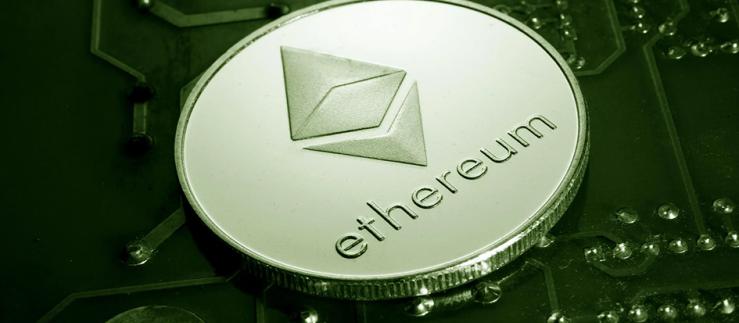Answers to our FAQ
In Switzerland, a distinctive ecosystem of innovative fintech and blockchain companies has developed in recent years. The Swiss government, the Federal Council, and parliament have done everything possible to create the most favourable conditions for Switzerland as a leading, innovative, and sustainable location for fintech and blockchain companies.

Unlike many other countries, Switzerland has a stable legal basis for conducting crypto business. On top of that, the Swiss Financial Markets Authority, FINMA is enabling crypto business and is in constant and close exchange with the blockchain industry to understand technological innovations and its impact on the crypto and blockchain world. It also holds regular roundtables with the industry and actively engages in a dialogue to facilitate business. In February 2018, FINMA has published the “ICO Guidelines” and was the first regulator who came up with a clear guidance related to ICOs and has introduced a token classification. In 2019, it published helpful guidelines on stable coins. The legal certainty provided by the country’s pragmatic regulations also enabled it to grant a banking license to financial service providers specializing in DLT/blockchain in 2019, and to approve the first Swiss crypto fund in 2021. Even in the infrastructure segment, Switzerland was “first” as SDX, a subsidiary of the Swiss stock exchange, received a license as a Stock Exchange and a license as a Central Security Depository for conducting business with Security Token.
It is an advantage that Switzerland has only one regulator which is FINMA. Other jurisdictions suffer from widespread competencies among several authorities.
By passing the DLT Bill in September 2020, the Swiss parliament amended the current laws to include crypto assets and digital ledger technology into Swiss Law, making the Swiss crypto regulatory framework one of the most advanced in the world. It is important to understand that Switzerland has not implemented a new “Blockchain Law” or “Blockchain Act” but has amended already existing federal laws. In essence, the federal laws were amended and were adapted to the needs of Blockchain companies. The following main changes came into force in 2021:
- DLT registered securities were introduced in order to overcome shortcomings related to the transferability of Digital Assets. Since 2021, it is possible to issue and transfer securities on a Blockchain without the need of any physical paper but purely Blockchain based.
- In the financial infrastructure area, the DLT trading license, a new license category was introduced: This is a blockbuster as the financial infrastructure of a country serves as a backbone for the markets. With this new license, it is possible to setup a trading venue for DLT/blockchain-based companies. On top, it is possible to offer settlement and even payment services under this new license type.
- Increase of legal certainty in the event of bankruptcy through segregation of crypto assets.
- A proportionate response to the risks identified in money laundering and terrorist financing.
(Source: Eberhart Anwaltskanzlei AG, Getting The Deal Through - Lexology)
No crypto-specific regulations exist in Switzerland. Existing principle-based and technology-neutral law applies to crypto assets. FINMA applies existing financial market regulations and differentiates between three types of crypto assets. Depending on their nature, different laws must be observed, including:
- The Banking Act (BA)
- The Financial Market Infrastructure Act (FMIA)
- The Collective Investment Schemes Act (CISA)
- The Anti-Money Laundering Act (AMLA)
- The Financial Services Act (FinSA)
- The Financial Institutions Act (FINIA)
Please note that the above-mentioned federal acts are supported by several ordinances and statements and guidance from FINMA.
(Source: Lexology GTDT – Cryptoassets & Blockchain Getting The Deal Through - Lexology)
The DLT Framework Act adjusted ten existing federal laws. The legislation improves the conditions for blockchain and DLT companies in Switzerland, thereby making the country an international pioneer in modern regulation of innovative financial market technologies. DLT is still a young technology and various states are striving to create legal frameworks to realize its full potential. The regulation-free spaces that still existed in the early phase of blockchain are becoming increasingly restricted and will ultimately disappear. Legislators, regulators and supervisory authorities are still searching internationally for the right balance between protecting investors, the financial markets and the financial system, and promoting innovation and making locations attractive.
(Source: Eberhart Anwaltskanzlei AG)
To raise funds via token sale, a Web3 start-up needs to make sure to have a solid white paper as well as classify its tokens correctly. When entering into a contractual agreement with an investor, a SAFT (simple agreement on future tokens) needs to be in place. It defines the terms and conditions between the company and the investor and is important because in the early stage, no token has yet been built or minted. Given the trend of increasing regulation, a SAFT needs to respect existing Securities laws.
The Swiss based Cardano network is unique in offering an ISPO (Initial Stake Pool Offering), an opportunity for a project to raise funds by using Cardano’s delegated Proof-of-Stake mechanism in which the project operates a stake pool and gives its tokens to delegators in exchange for their periodical staking rewards.
A very popular tool to raise funds these days are DAOs (Decentralized Autonomous Organizations). The Swiss Association is a powerful tool for creating DAOs (see also below).
(Source: Cardano Video, ISPO - Initial Stake Pool Offering - Guide | Genius Academy (geniusyield.co))
Depending on the financial activities performed in Switzerland, a company or an individual is required to have an authorization from the Swiss Financial Market Supervisory Authority (FINMA). In addition, businesses performing bitcoin transactions need to comply with the regulations provided by the Swiss Anti-Money Laundering Act. This is vital to ensure there are no legal issues or law-breaking activities unknowingly undertaken by the business.
Switzerland offers several types of licenses: The most prominent license for doing crypto business are the securities firm license and the fintech license, the banking license, and the mentioned DLT trading license.
Obtaining a crypto exchange license in Switzerland is also an advantage for companies that want to operate in a well-regulated European market.
The Swiss government is flexible towards new technologies, willing to accommodate innovative approaches, and seeks to create the best possible framework conditions so that Switzerland can establish itself and evolve as a leading location for the blockchain industry.
(source: Switzerland Crypto License - Guide on Crypto Companies (companyformationswitzerland.com)
Internationally, it can be difficult to open a bank account as a company involved in web3 solutions or crypto activities. Constantly developing laws and practices led to stricter regulations and harsher onboarding and verification processes or even the rejection of bank accounts for companies operating in the crypto space.
In Switzerland, however, many banks already have experience with blockchain businesses, and it is relatively easy to open an account.
Companies benefit from Switzerland’s broad experience with blockchain technology. Service providers, law firms, banks and authorities are familiar with the industry and can respond to your company’s needs.
(Source: Sygnum, SEBA, How to quickly set up a Company – Crypto, Blockchain or Token? - LINDEMANNLAW)
Unlike the Swiss Franc, the Swiss Federal Tax Administration (FTA) does not classify cryptocurrency as legal tender. Instead, it is classed as an asset. This means cryptocurrency is considered a private wealth asset.
Generally, cryptocurrency is subject to income, wealth and profit tax, stamp duty and withholding tax.
The crypto income tax rate in Switzerland is made up of three different taxes: the federal income tax, the canton income tax and the municipal income tax. Switzerland uses a progressive federal tax rate, and many cantons follow the same structure, although some apply a flat rate. The income tax rate will vary based on where you live in Switzerland and how much you earn.
The wealth tax applies to all private wealth assets, including cryptocurrency. The FTA defines the taxation value of cryptocurrencies on the 31st of December each year, based on the average price of the respective currency on a variety of different crypto exchanges. Your taxes are then calculated on the total value of your assets.
Cryptocurrency transactions that are free in Switzerland include: buying of crypto with fiat currency (like CHF), selling, trading and spending crypto if you are a private investor, and transferring cryptocurrencies between your own wallets.
For more information on taxation and cryptocurrency, please visit Kryptowährungen – Besteuerung | ESTV (admin.ch)
Decentralized autonomous organizations (DAOs) are self-governing communities without hierarchies that use tokens based on the blockchain to negotiate participation and decision-making processes. The tokens can be purchased or earned through active participation and serve as a voice when decisions are made.
Swiss associations are a unique legal entity that can provide the necessary structure and legal framework for a DAO. By using a Swiss association, a DAO can operate in a transparent and compliant manner, providing legal certainty for all involved parties.
In this video, you can learn about the benefits and potential challenges of using a Swiss association for a DAO and gain initial insights on how to navigate the legal landscape. You will also find some of the key considerations for organizations looking to create a DAO.
Tokenization is the process of associating a financial asset with digital tokens deployed on a distributed ledger technology platform, typically a blockchain. It enables non-listed, private companies to leverage new financing and investment models. Tokenization allows them to open their capital to investors by different means and through different channels, such as online exchange platforms.
Tokenization can be seen as a representation of traditional shares as virtual, digital assets. Note that:
- tokenization does not result in the creation of new types of assets. Tokenized shares are - and remain - shares in the company that issued them;
- a company can only tokenize shares that already exist, meaning that shares need to be issued in accordance with Swiss Corporate Law before they can be tokenized;
- tokenized shares will not constitute a new class of shares under Swiss law.
Learn more about tokenization on CMTA’s FAQ section
CMTA is a not-for-profit, non-governmental association, assuming an independent role as standard-setter for the use of blockchain technology in capital markets.






